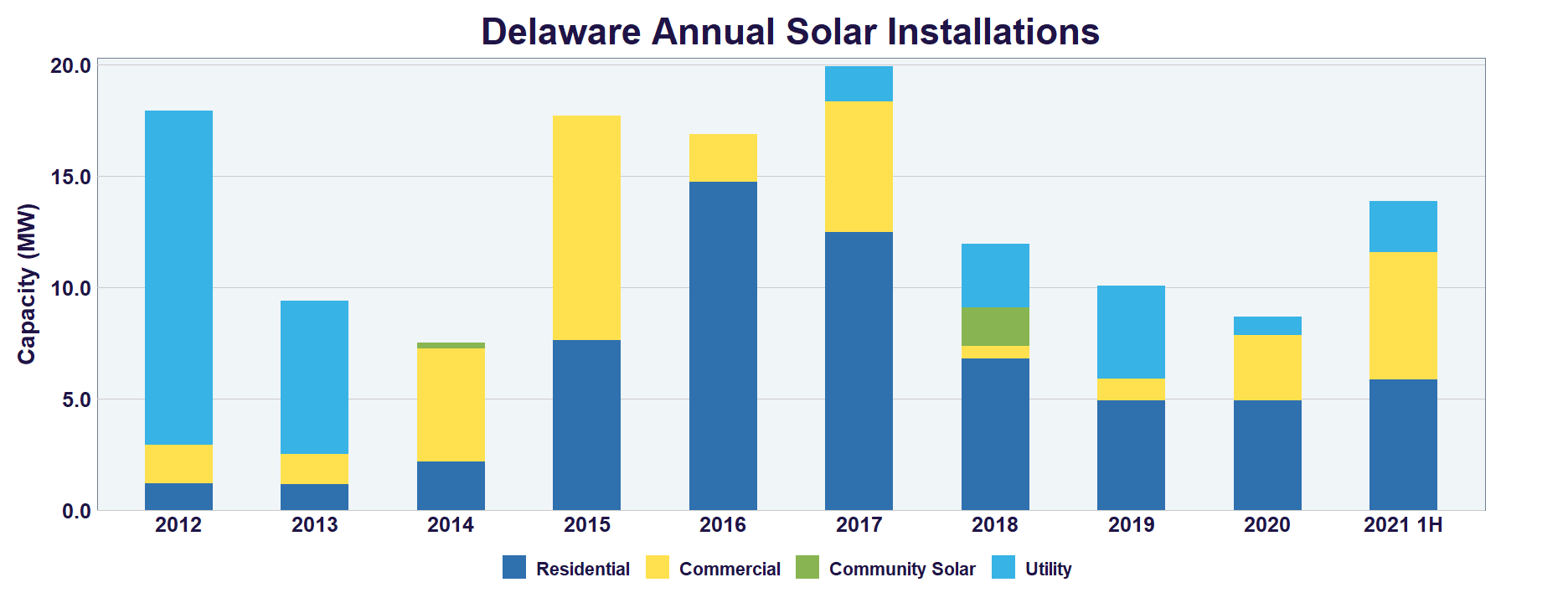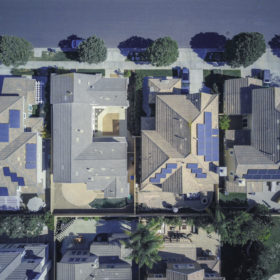Delaware Governor John Carney has signed into law a bill which looks to expand access to community solar projects, while also reducing some of the barriers blocking project siting and completion.
Community solar has been approved in Delaware since 2010, yet the state has had little success in getting community projects built, as highlighted in this Solar Energy Industries Association chart of Delaware’s annual solar capacity additions.

In an effort to grow the resource, Senate Bill 2:
- Allows for multiple types of ownership models, defined as “community-owned energy generating facilities,” to exist and compete in the marketplace
- Increases the maximum size of these systems to 4 MW
- Eliminates the requirement that all customers of a system must be located on the same distribution feeder
- Eliminates the requirement that all customers of a system must be identified before the system can be built
- Provides for the regulation of these systems by the Public Service Commission and sets forth the fee and requirements for a Certificate to Operate
- Provides compensation to the system owner for 10% or less of unsubscribed energy
- Requires each system owner to certify that it serves at least 15% low income customers
The bill was signed at the site of a 2 MW solar array near the confluence of the Brandywine Creek and Christina River, owned by Soltage.
“This type of legislation is key for opening up clean energy markets, driving economic growth and job creation in the state, and ultimately, helping the country achieve the decarbonization needed to avoid the worst effects of the climate crisis,” said Soltage CEO and Co-Founder, Jesse Grossman.
This content is protected by copyright and may not be reused. If you want to cooperate with us and would like to reuse some of our content, please contact: editors@pv-magazine.com.









By submitting this form you agree to pv magazine using your data for the purposes of publishing your comment.
Your personal data will only be disclosed or otherwise transmitted to third parties for the purposes of spam filtering or if this is necessary for technical maintenance of the website. Any other transfer to third parties will not take place unless this is justified on the basis of applicable data protection regulations or if pv magazine is legally obliged to do so.
You may revoke this consent at any time with effect for the future, in which case your personal data will be deleted immediately. Otherwise, your data will be deleted if pv magazine has processed your request or the purpose of data storage is fulfilled.
Further information on data privacy can be found in our Data Protection Policy.